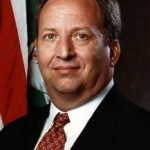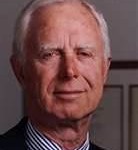Looks like the victory of Elizabeth Warren as the new senator in Massachusetts will revive the battle for Dodd Frank, the fiduciary standard and other needed financial reforms.
Warren, a Harvard law professor and bankruptcy expert, is a major, vocal proponent of financial reform and will provide some much needed energy to the push for financial reform. Her bad experience as the nominated head of the Consumer Financial Protection Bureau probably taught her some hard political lessons.

As we have said on this site many times before, there are powerful political forces in Washington working against the interests of individual investors. Now, some of the major financial industry lobbying firms which pushed Warren out are no doubt feeling very nervous about her return as a Senator.
This is justified since she knows the issues, the problems, and who is working against the interests of individual investors. if she can educate a few of her Senate colleagues, Republican and Democrat, about how the financial industry works against its own customers, she may get a few needed votes to push through these long overdue reforms.
Obama Should Recognize That Financial Reform Is Good Politics
It is also worth noting that if Obama had pushed hard to police and convict the systemic fraud which precipitated the recession, his election would not have been “too close to call” in many key states.
The reason: both his liberal base and Tea Party members alike wanted fraud violators punished. That never happened, so it aliened both groups. Now, anyone interested in financial reform should begin to examine why there were no major prosecutions of financial fraud, which spanned from mortgage clerks, and loan supervisors to derivative traders and their managers.
In an excellent article in the Oct. 29, 2012 issue of the New Yorker, writer George Packer presents the insider’s account of Jeff Connaughton, who worked closely with Joe Biden and was an eyewitness to the bureaucratic bumbling and fierce lobbying which stymied the push to prosecute the mortgage fraudsters. This included bad faith efforts by the Justice Department, FBI, SEC, Treasury, and advisers, such as Larry

Summers and key senators, both Republican and Democratic.
The detailed article ends by saying that Wall Street always wins. A depressing conclusion, but with millions in lobbying money, 3,000 lobbyists cruising capital Hill, and the prospect of flipping any critic into a highly-paid consultant, staff bureaucrats and senators alike go for the money. That’s what Rahm Emanuel, Obama’s first chief of staff, did when he earned $16 million in 30 months, while working for an investment bank. Not a bad salary for a former ballet dancer with no formal banking training.
Still, Obama showed his major flaw by relying on bad choices for advisers, such as Larry Summers (left),  who sided with the broker-dealer bankers and berated former CFTC Chairwoman Brooksley Born, over her planned regulation of OTC derivatives. Her regulations could have prevented the mortgage derivatives fraud, but Summers went with the monied interests and eventually pushed Born out. The banker’s push for unregulated, highly-leveraged derivatives trading went on unchallenged until the bad paper made its way into the global financial system. The meltdown was its logical conclusion after the fraud was discovered.
who sided with the broker-dealer bankers and berated former CFTC Chairwoman Brooksley Born, over her planned regulation of OTC derivatives. Her regulations could have prevented the mortgage derivatives fraud, but Summers went with the monied interests and eventually pushed Born out. The banker’s push for unregulated, highly-leveraged derivatives trading went on unchallenged until the bad paper made its way into the global financial system. The meltdown was its logical conclusion after the fraud was discovered.
Obama’s Missed Opportunity
Had Obama prosecuted the guilty parties of the mass mortgage and investment fraud, the election would not have been so close. That’s a good example of why financial reform is also good politics since it was this call to justice which resonated with both Tea Party and the liberal base. But enforcing the law is also a good business proposition for RIAs, 401(k) plan sponsors and other investment professionals who want to tout their fiduciary obligations.
Now may be the best time to rectify these past bad appointments. New SEC and Justice Department head appointments would send a clear message and focus Obama’s blurry image which has marred his presidency. Unfortunately, individual investors have not had a friend at the SEC since Arthur Levitt

served as chairman in 1995. A new visible SEC appointment would refine Obama and send the signal that unbridled trading is being curbed.
But as it stands today, segments of the financial services industry are resisting the call to investor protections. Instead, they prosper on revenue sharing, unnecessary fees and whatever huge monetary benefits conflicts-of-interest generate. So the best remedy is for investors to discover how they are being victimized by some professionals. Then, they can get to keep a lot more of their own money.










